It’s not your imagination! More and more of your clients are investing in private markets instead of simply limiting their strategies to stocks listed on the exchanges. Indeed, the number of publicly-traded companies has declined significantly since the mid-1990s. Although many clients are investing in “alternative” vehicles to participate in private markets, a large portion of some clients’ wealth is represented by closely-held stock in businesses they’ve started or in which they are investors.
As trends in equity ownership have shifted toward private investment, trends in charitable giving have shifted, too, toward increased popularity of giving closely-held business interests to charitable organizations such as a donor-advised or other type of fund at the community foundation. Here are three factors to keep in mind as you counsel philanthropic clients who own shares in a closely-held business:
- Your clients who give shares of closely-held stock held for more than one year to a fund at the community foundation are generally entitled to a deduction of the fair market value of the stock, subject to a 30% of adjusted gross income limitation and a five-year carry forward allowance. Remember, though, that if your clients were to give the closely-held shares to a private foundation, instead of to a public charity such as the community foundation, your client is eligible for a charitable deduction equal to the lower of the client’s cost basis or the shares’ fair market value–and the deduction is capped at 20% of adjusted gross income (with the five-year carry forward). This is why it’s highly advantageous for your client to work with the community foundation in these instances instead of transferring closely-held shares to a private foundation.
- It may never be too early to start looking at an exit strategy for a client’s closely-held business interests, and it is critically important that you start the charitable giving conversations with your client well in advance of exploring an actual sale. Your client will need to give closely-held shares to the community foundation before any deal discussions begin. Otherwise, the client’s tax deduction may be in jeopardy by running afoul of the step transaction doctrine.
- Substantiation requirements for gift valuation are very important. The IRS requires strict compliance with its rules for a proper appraisal of any non-marketable asset with a value over $5,000. The client must obtain a qualified appraisal no earlier than 60 days prior to the gift.
The community foundation is here to help you build effective charitable giving strategies for your clients who own closely-held business interests. Please reach out, even if (and especially if!) the client’s exit is years away. We’d love to help set your client’s charitable intentions in motion to achieve both the client’s philanthropic and tax planning objectives.
 Keith Brennan, Director, Business Development, SEI Private Wealth Management
Keith Brennan, Director, Business Development, SEI Private Wealth Management The information contained in this communication is not meant to be a substitute for thorough estate planning and is not meant to be legal and/or estate advice. Please consult your legal counsel for additional information. Neither SEI nor its affiliates provide tax advice. Please note that (i) any discussion of U.S. tax matters contained in this communication cannot be used by you for the purpose of avoiding tax penalties; (ii) this communication was written to support the promotion or marketing of the matters addressed herein; and (iii) you should seek advice based on your particular circumstances from an independent tax advisor.


 Questions?
Questions?




